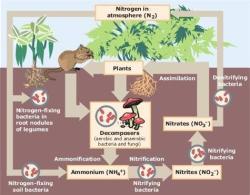Adding mulch, compost and/or manure to your garden will definitely help the soil. Over a few years it will even soften and loosen the soil 3, 6, 12 and more inches down, because it will attract worms and also feed other soil organisms that move through the soil and loosen it and mix it, and make it more fertile.
I don't know why that is - soil organisms attracted by compost are either ALL beneficial, or the benefits outweigh the drawbacks so much that it seems to be 100% beneficial. My guess is that higher plants, soil itself, and soil organisms co-evolved, and 90-99% of the ones that survived
benefit all the other ones that survived - because these "winners" outperformed any combinations that were less mutually beneficial.
Over millennia, it turned into "winner take all", and now all or most soils and all or most plants host micro-organisms and worms and "bugs" that are extremely cooperative at turning plant parts that fall to the ground (mulch) into (compost and) fertile soil that support LOTS more plants that will drop LOTS more mulch and compost to feed ever more microbes and bugs and plants.
That's just a theory of mine, I don't claim that anyone else supports it.
Except, maybe, Alexander Pope, who got me started thinking along those lines.
Alexander Pope
Essay On Man
http://www.gutenberg.org/files...
Look round our world; behold the chain of love
Combining all below and all above.
See plastic Nature working to this end,
The single atoms each to other tend,
Attract, attracted to, the next in place
Formed and impelled its neighbour to embrace.
See matter next, with various life endued,
Press to one centre still, the general good.
See dying vegetables life sustain,
See life dissolving vegetate again:
All forms that perish other forms supply
(By turns we catch the vital breath, and die),
Like bubbles on the sea of matter borne,
They rise, they break, and to that sea return.
Nothing is foreign: parts relate to whole;
One all-extending, all-preserving soul
Connects each being, greatest with the least;
Made beast in aid of man, and man of beast;
All served, all serving: nothing stands alone;
The chain holds on, and where it ends, unknown.

